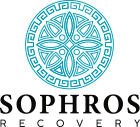We often intensely resist the state of being vulnerable. Some even have a deep-seated fear
of it. Vulnerability: the quality or state of being exposed to the possibility of being attacked or
harmed, either physically or emotionally. Hating vulnerability makes sense in moments where
we’re physically at risk — in the jungle, you wouldn’t want to be in a vulnerable position
without tools or self-defense against the predators that are stalking us. But why do we still struggle with
being vulnerable when it’s only emotional? Even when we’re around people we admire and trust,
as in, those attempting to help us move past challenges? Why is it so difficult?
Regardless of the context, emotional vulnerability always comes with painful risks:
reliving trauma, having sensitive information used against you, people deciding they no longer
want to connect with you, resurfacing “unknown” subconscious stressors… The potential
opening of wounds that comes with vulnerability is why so many use drugs and alcohol in the
first place; drug and alcohol addiction can suppress or numb pain. Also, vulnerability about
substance dependency is what often keeps people from seeking treatment — it would be too
painful and terrifying to even admit there is a problem. Who knows what will happen once it’s
out in the open?
Vulnerability in relation to others means being vocally honest, expressive, or risky
without knowing how they will perceive you. Vulnerability is putting your heart and self-esteem
out on the line. If you’ve been vulnerable with people in the past and been punished for it, it
might be even harder for you to unwire the armor-up habit. Or, some people end up being too
chronically vulnerable, consistently, fully giving themselves to others despite their mistreatment
until they have nothing left to give.
Ultimately, having a healthy relationship with vulnerability comes with profound and
significant rewards — especially in SUD/addiction and mental health recovery. Luckily,
therapists in partial hospitalization programs (PHPs) and intensive outpatient programs (IOPs)
understand the difficulty and sensitivity of vulnerability, and will work with their clients to cope
with or evolve relationships with vulnerability. Let’s discuss the three reasons why a healthy
relationship with vulnerability will help someone in SUD/addiction treatment: trust,
self-discovery, and community.
Trust
You can build closer relationships with your therapist and treatment team by being
honest and vulnerable. They can assist you better with more ample resources when they know
you and your needs better. At the same time, you can prove to yourself through
putting-it-in-practice that vulnerability can be safe and celebrated. You can also further your
amends with friends and family who may have been hurt by drugs, alcohol, or addiction by
opening up to them about your experiences, using honesty as a tool for trust, and in turn, having
a more functional relationship.
Self-Discovery
Being vulnerable, open, and honest with your therapist allows them to dig
deeper into questions about the root of your challenges you’ve never thought about before.
Working through the more significant and emotionally charged details of your background fuels
a better, more comprehensive understanding of who you are and why you’ve been dealing with
your current challenges or patterns. You can develop stronger self-perception and higher
self-esteem.
Community
Vulnerability breeds closeness; when you share information about yourself, it encourages
others to open up about themselves, and in turn, you have friends! Community is imperative in
cases of SUD/addiction, especially with those who understand exactly what you’re going
through. By sharing and being honest to your peers, they may even validate and relate to a lot of
what you thought was an isolated experience. Better yet, vulnerability with others can be
inspirational.
In conclusion, we hope you’ll take a moment to reflect upon your own relationship with
vulnerability, especially if your fear of being vulnerable is what’s keeping you away from
getting the help you need. Reach out to a local addiction treatment center in Jacksonville, FL
that understands, is patient, and will support you at your own pace.







